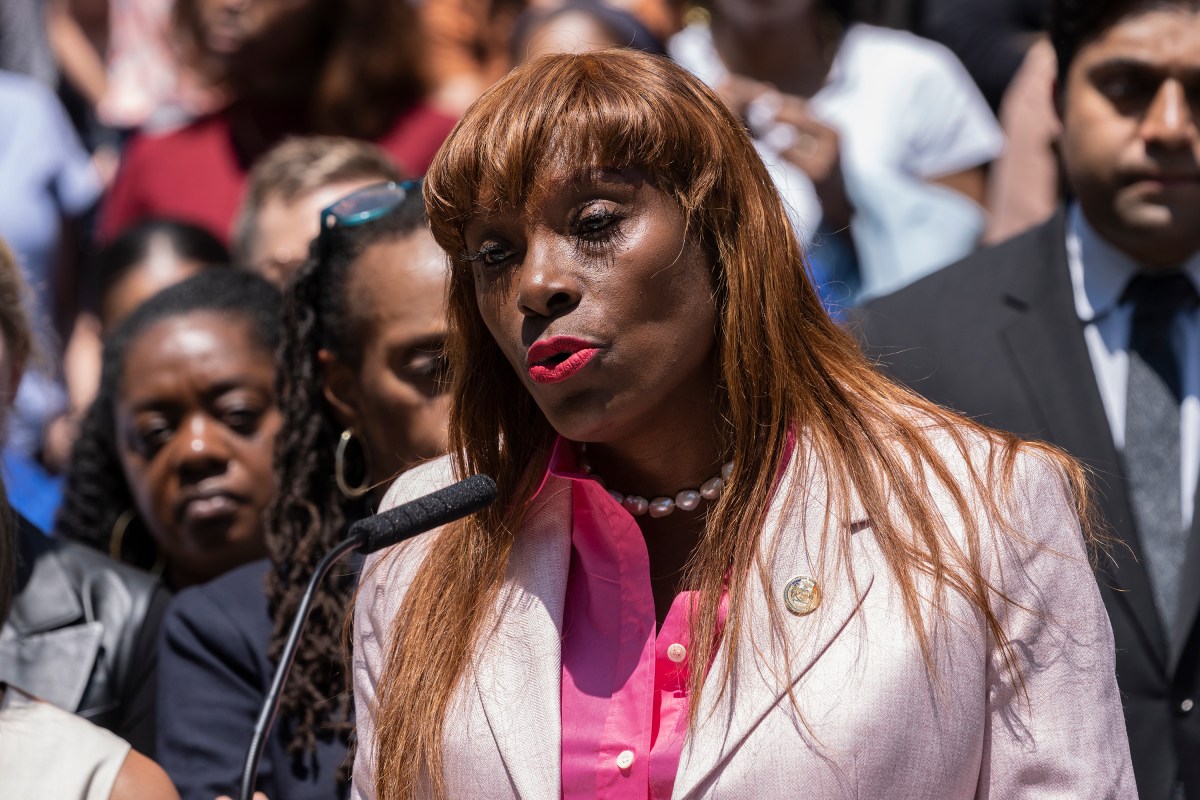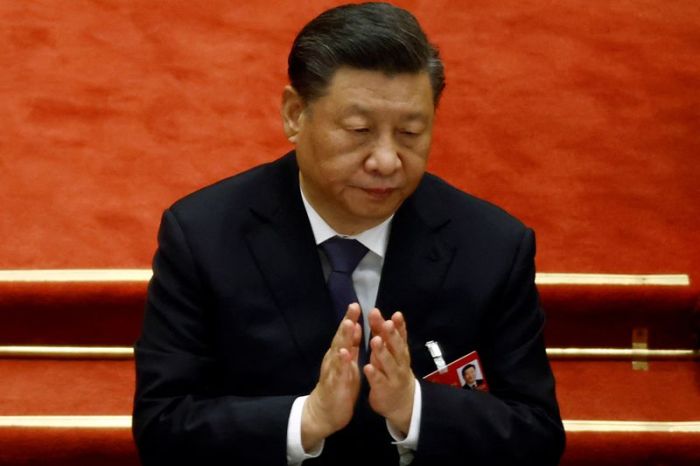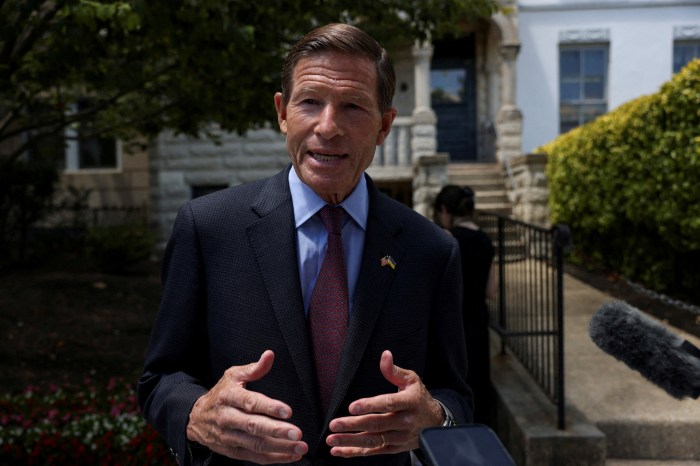By Steve Holland, Michael Martina and David Brunnstrom
WASHINGTON (Reuters) -U.S. President Joe Biden will hold a call on Friday with Chinese leader Xi Jinping, as Washington warned China was considering military support for Russia’s invasion of Ukraine, a step that would dramatically widen the gulf between Beijing and Western governments.
The call, first announced by the White House on Thursday, comes at a pivotal moment in U.S.-China relations and in Ukraine, where heavily outnumbered local forces have prevented Moscow from capturing any of the country’s biggest cities so far.
The Biden administration has issued public and private warnings that Beijing would face dire consequences if it provides material support to Russian President Vladimir Putin’s war.
“President Biden will be speaking to President Xi tomorrow and will make clear that China will bear responsibility for any actions it takes to support Russia’s aggression, and we will not hesitate to impose costs,” U.S. Secretary of State Antony Blinken told a news briefing.
Blinken said China had a responsibility to use its influence with Putin and to defend international rules, but that it appeared Beijing was “moving in the opposite direction.”
“We’re concerned that they’re considering directly assisting Russia with military equipment to use in Ukraine,” he said, officially confirming for the first time reports earlier in the week that U.S. officials believed China had signaled its willingness to provide Moscow with such support.
Blinken did not elaborate on what the costs might be to China, and Washington has not yet offered evidence of the claim that China has signaled a willingness to help Russia. Moscow has denied asking China for military assistance, and China’s foreign ministry has called the idea “disinformation.”
Western nations have been sending military and humanitarian aid to Ukraine.
White House press secretary Jen Psaki characterized the call as “an opportunity for President Biden to assess where President Xi stands.”
“The fact that China has not denounced what Russia is doing, absence of denunciation by China of what Russia is doing in and of itself speaks volumes,” Psaki said.
China’s official Xinhua news agency said the call would happen in the evening Beijing time.
Asked which side requested the call, a U.S. administration official said it was mutually agreed in a Rome meeting on Monday, where national security adviser Jake Sullivan held seven hours of talks with Chinese diplomat Yang Jiechi.
U.S. officials described those talks as “tough” and are still debating how to react if Xi gives Putin military or economic aid.
Putin’s invasion of Ukraine, which is in its fourth week, has killed hundreds of civilians, reduced cities to rubble and sparked a humanitarian crisis as millions flee the country.
Russian Finance Minister Anton Siluanov said this week the country was counting on China to help it withstand the blow to its economy from massive Western sanctions aimed at isolating Russia’s economy from the rest of the world.
China has refused to condemn Russia’s action in Ukraine or call it an invasion, and it has censored online content in China that is pro-West or unfavorable to Russia. Beijing, while saying it recognizes Ukraine sovereignty, has also said Russia has legitimate security concerns that should be addressed.
“We have seen China basically give tacit approval to what Russia is doing by refusing to join sanctions, by blaming the West and the United States for the assistance we’ve given Ukraine, by claiming they wanted to see a peaceful outcome, but essentially doing nothing to achieve it,” one senior U.S. defense official told Reuters before the call was announced.
Blinken on Wednesday said China’s refusal to criticize the invasion was completely incompatible with its professed recognition of the U.N. Charter underscoring the sovereignty of nations.
‘YOU CAN’T GO BACK’
Biden and Xi, who spent considerable time together before they came to lead their respective countries, have yet to meet face to face since Biden took office last year. But the call will mark their fourth interaction since then, the most recent a November video conference.
Washington has sought to define the relationship as one of competitive coexistence, but China’s “no-limits” strategic partnership with Russia announced last month and its stance on Ukraine has called that into question.
Targeting Beijing with the sort of extensive economic sanctions imposed on Russia would have potentially dire consequences for the U.S. and global economies as well, given that China is the world’s second largest economy and largest exporter.
Evan Medeiros, an Asia specialist in the Obama administration, said during a webinar hosted by the German Marshall Fund of the United States that the Biden administration appeared to be trying to convey to Xi that China was at risk of crossing thresholds that would do irreversible damage to U.S.-China relations.
“Not only are the costs very, very high from crossing those thresholds – providing military assistance, joint disinformation campaigns – but … once you cross them, you can’t go back,” he said.
“The message to the Chinese right now is basically there are a variety of futures for the relationship. Some very dark, some more moderate,” said Medeiros.
(Reporting by Steve Holland and Doina Chiacu; additional reporting by Michael Martina and David Brunnstrom; Editing by Raissa Kasolowsky, Heather Timmons and Jonathan Oatis)

























